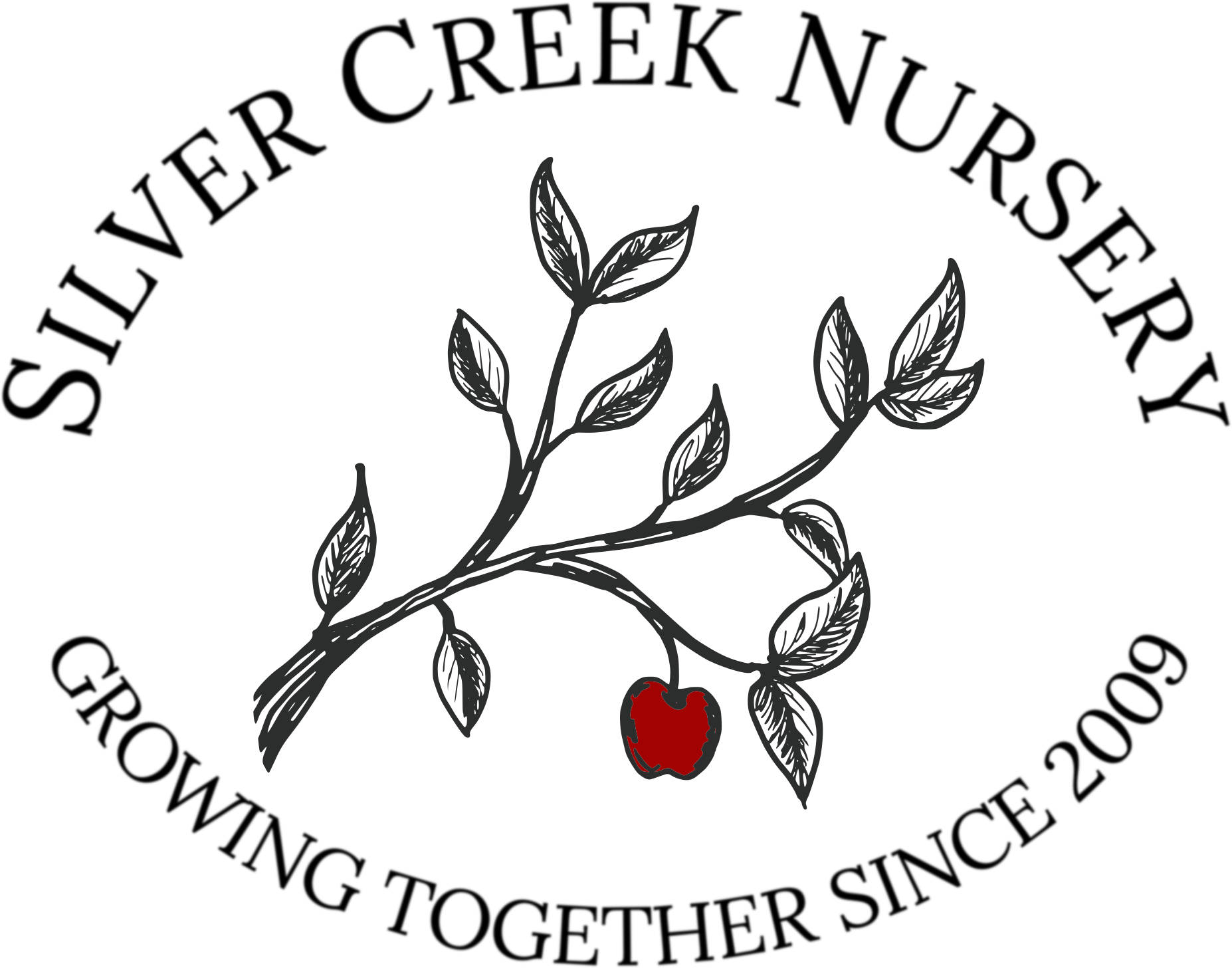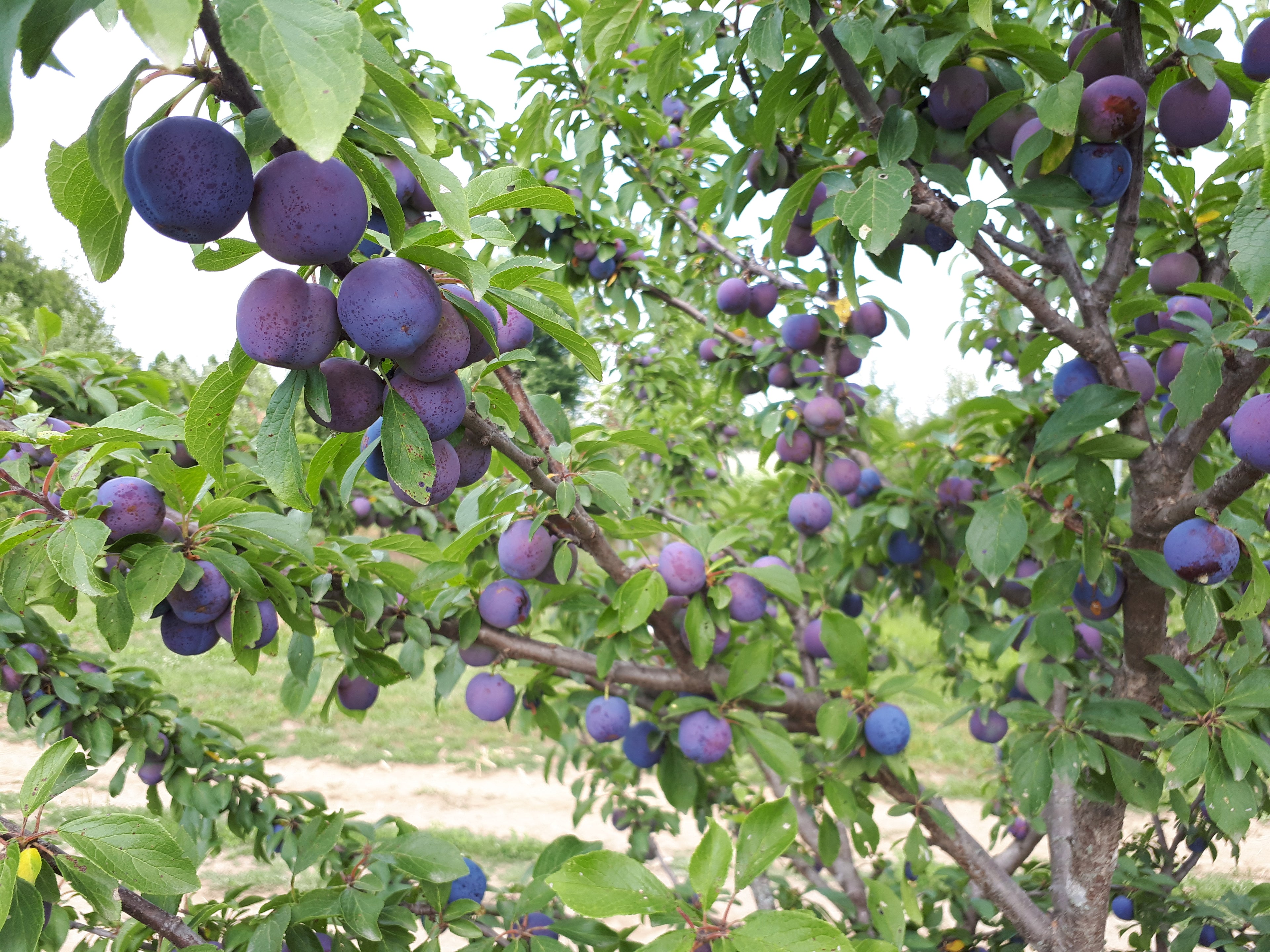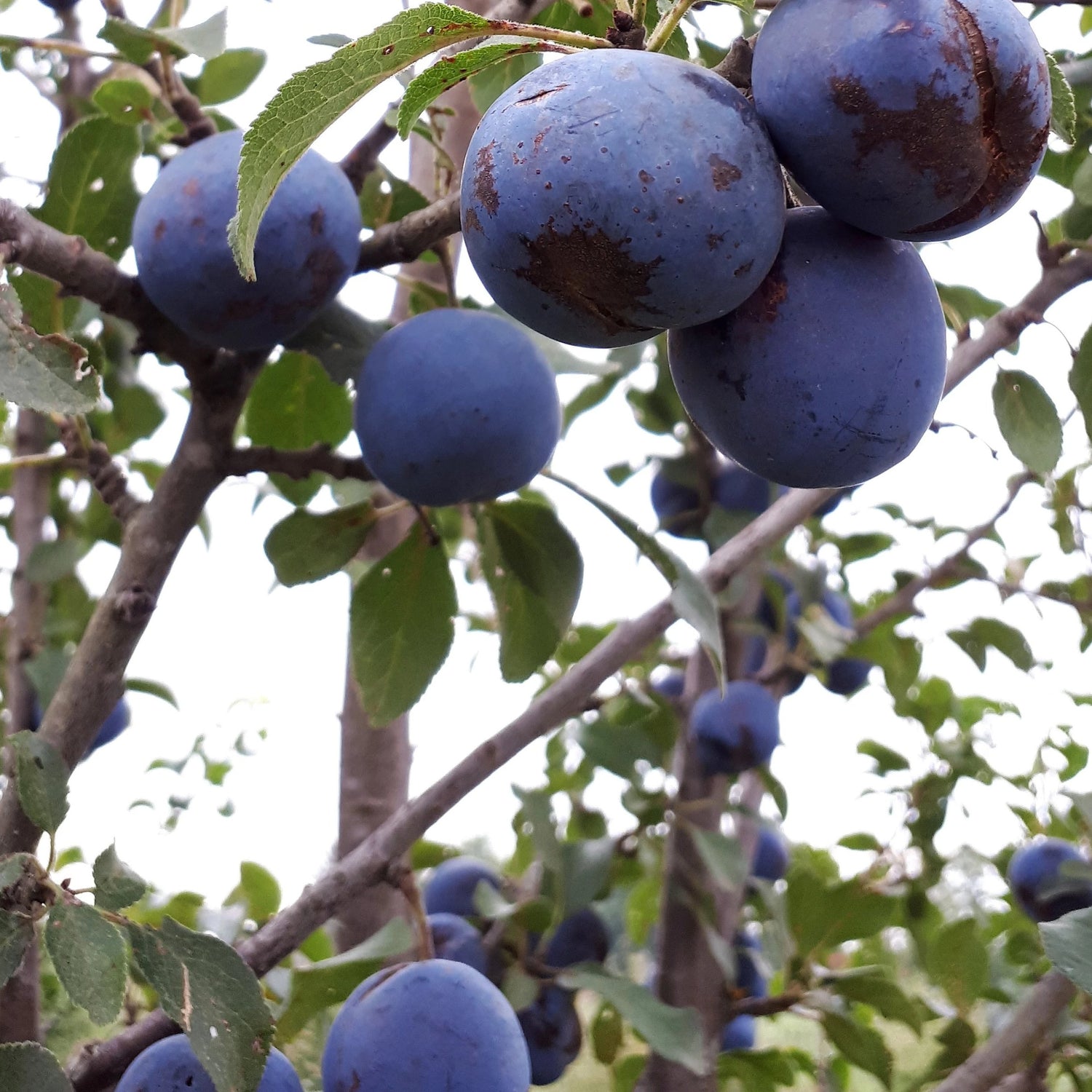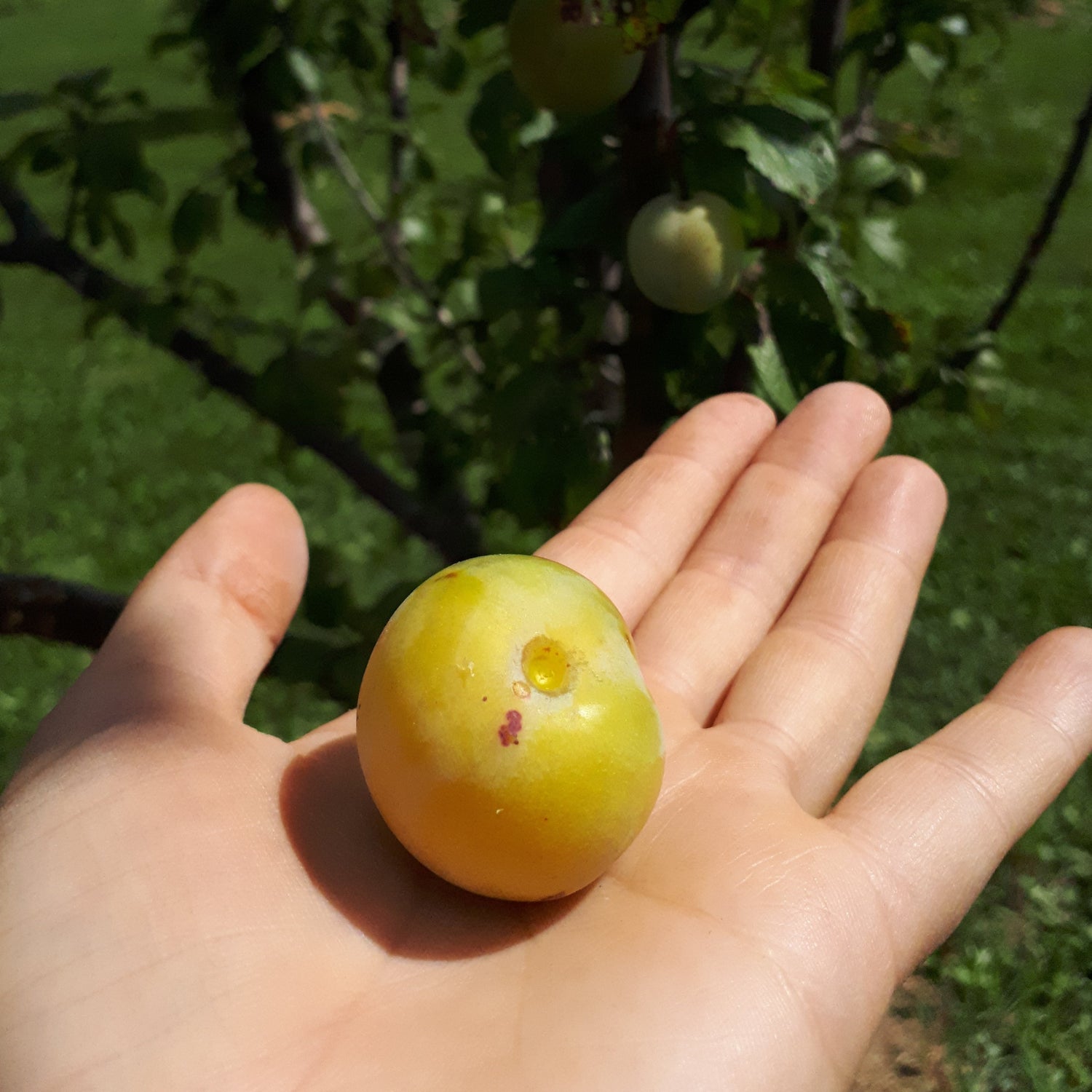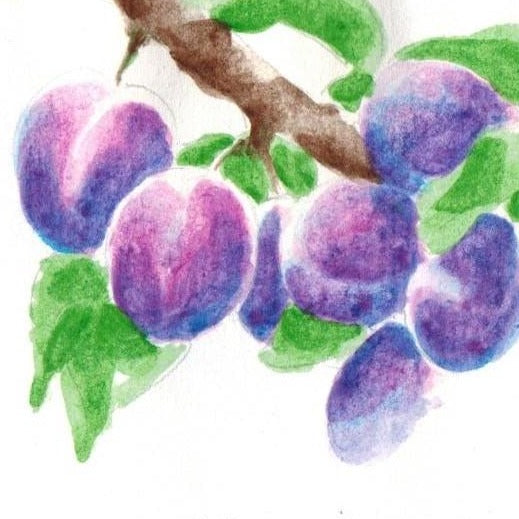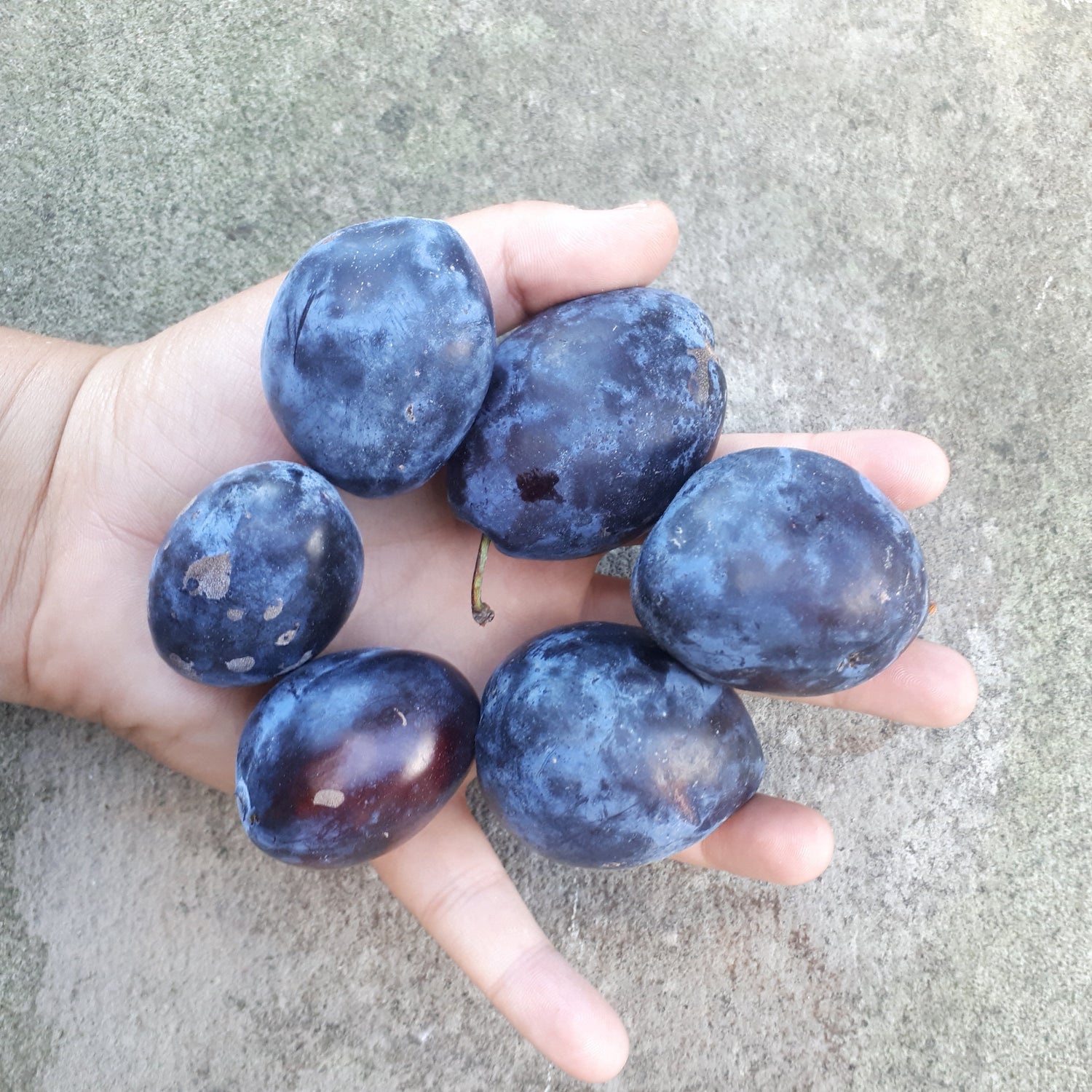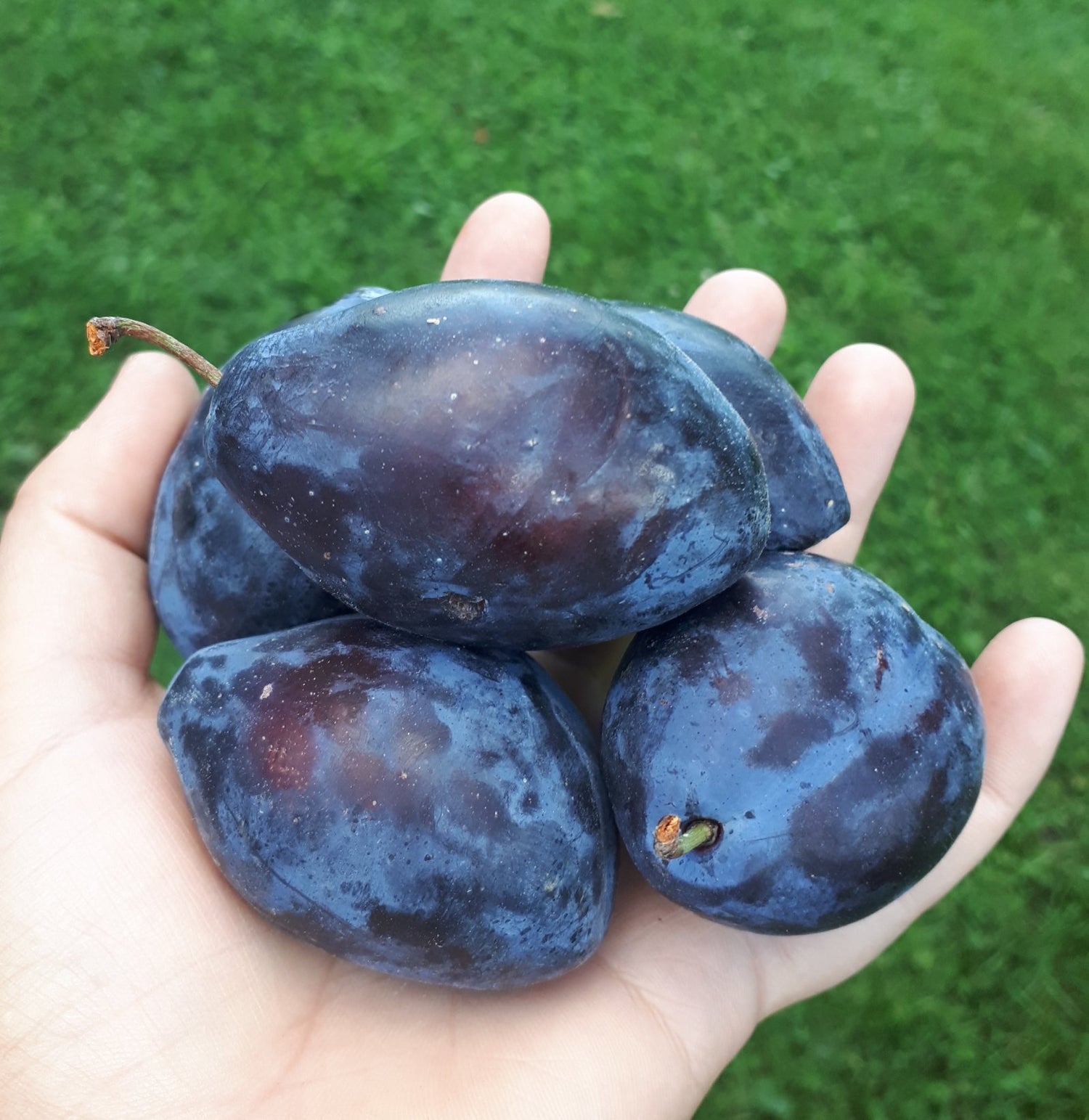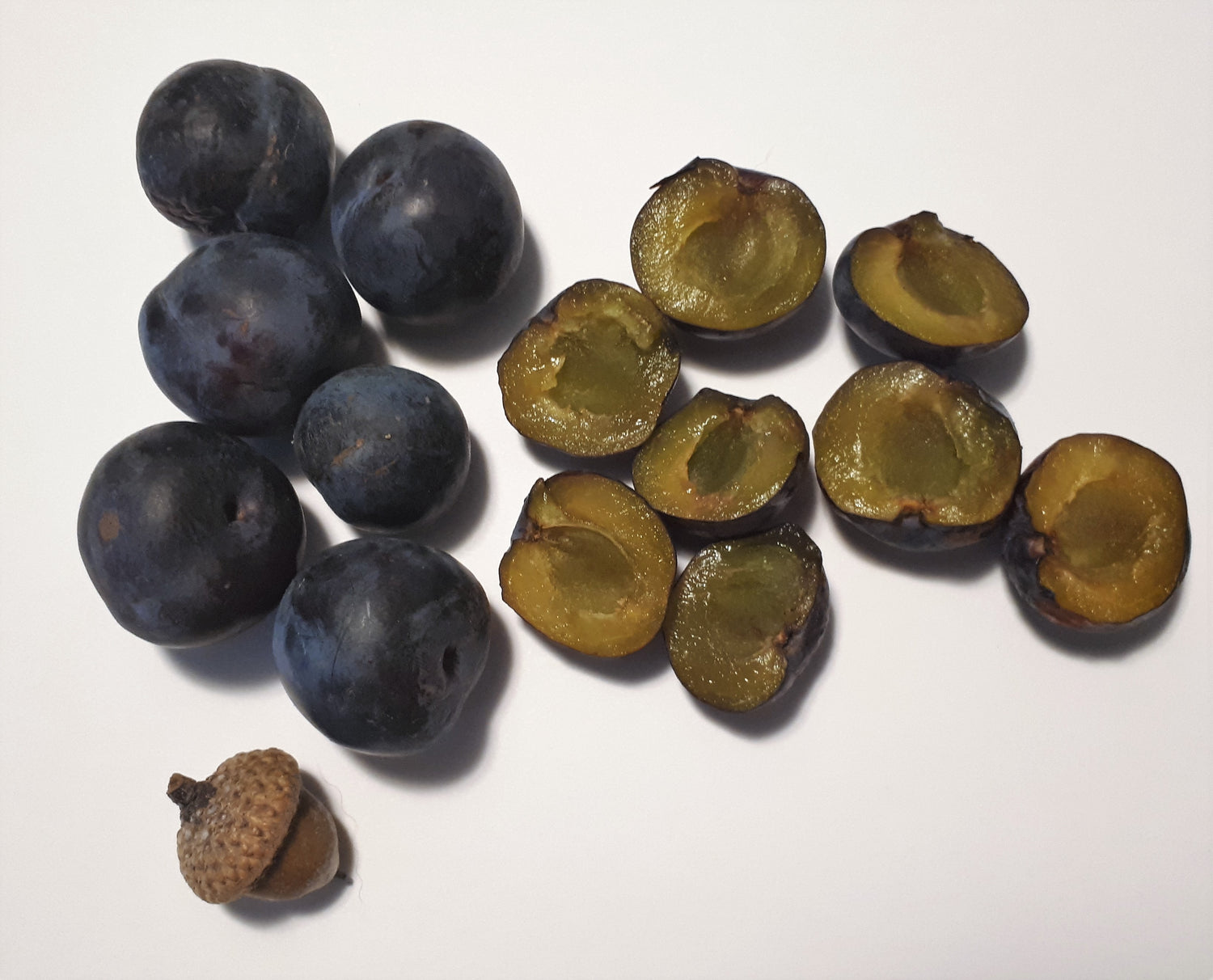European Plum Trees
Prunus domestica
European plums are a diverse group of fruits. Some are extremely sweet and are great for eating fresh while others shine when dried or used in baking. They are generally hardier than apricots and peaches, requiring a little less maintenance to get rewarding crops. Some European plums are self-pollinating and others require pollination partners of a different variety. Only European plums can pollinate other European plums.
Sort by:
18 products
18 products
Available only for pick-up at nursery.
Species: Prunus sp
History: These seedlings are grown from plum seeds collected from our orchard and a Niagara orchard.
Why We Grow It: Since plums tend to stay true to type more than apples, these seedlings will likely bear a strong resemblance to their parents. For more information on each, check out the respective product pages for their parent varieties! If you prefer the certainty of named varieties, these seedlings would also be good for feeding wildlife or planting along fence lines.
Species: Prunus sp
History: These seedlings are grown from Damson plum seeds collected from our orchard. Damson is a plum that may stem from antiquity!
Why We Grow It: Seedling fruit trees are a great way to add some diversity and mystery to your garden or orchard! The parent variety, Damson, produces small blue fruit that are sweet and a little spiced. They are suitable for fresh eating and great for jams, preserves, etc. For a more detailed description, see the Damson page on our website here.
Please Note: Since plums tend to stay true to type more than apples, these seedlings will likely bear a strong resemblance to their parent variety. However, any specific information listed on this page should be taken with a grain of salt as there may be some variation from the parent tree.
Species: Prunus sp
History: These seedlings are grown from Mirabelle plum seeds collected from our orchard. Mirabelle has been grown in Europe for a long time and remains popular there, especially in France.
Why We Grow It: Seedling fruit trees are a great way to add some diversity and mystery to your garden or orchard! The parent variety, Mirabelle, is super sweet and flavourful. For a more detailed description, see the Mirabelle plum page on our website here.
Please Note: Since plums tend to stay true to type more than apples, these seedlings will likely bear a strong resemblance to their parent variety. However, any specific information listed on this page should be taken with a grain of salt as there may be some variation from the parent tree.
Species: Prunus sp
History: These seedlings are grown from plum seeds collected from our orchard. We missed labelling this particular batch, but we know their parents are a blue prune plum similar to German and Late Italian plums.
Why We Grow It: Seedling fruit trees are a great way to add some diversity and mystery to your garden or orchard! The seedling of a classic prune plume like German or Late Italian, these plums will be good for fresh eating but great for baking, drying, etc.
Please Note: Since plums tend to stay true to type more than apples, these seedlings will likely bear a strong resemblance to their parent variety. However, any specific information listed on this page should be taken with a grain of salt as there may be some variation from the parent tree.
Species: Prunus sp
History: These seedlings are grown from German plum seeds collected from our orchard. Likely a few centuries old, German plums are a classic prune style plum that are great for traditional German desserts.
Why We Grow It: Seedling fruit trees are a great way to add some diversity and mystery to your garden or orchard! The parent of this variety, German plum, is sweet and aromatic. It is good for eating fresh and great for drying or baking. For a more detailed description, see the German plum page on our website here.
Please Note: Since plums tend to stay true to type more than apples, these seedlings will likely bear a strong resemblance to their parent variety. However, any specific information listed on this page should be taken with a grain of salt as there may be some variation from the parent tree.
Species: Prunus sp
History: These seedlings are grown from Late Italian plum seeds collected from our orchard. Late Italian is a traditional prune variety and is still commonly grown in Europe and North America today.
Why We Grow It: Seedling fruit trees are a great way to add some diversity and mystery to your garden or orchard! The parent variety, Late Italian, produces an all-purpose plum that is excellent for drying and great eaten fresh, canned, or incorporated into baking, desserts, or salads. For a more detailed description, see the Late Italian page on our website here.
Please Note: Since plums tend to stay true to type more than apples, these seedlings will likely bear a strong resemblance to their parent variety. However, any specific information listed on this page should be taken with a grain of salt as there may be some variation from the parent tree.
Species: Prunus sp
History: These seedlings are grown from Lombard plum seeds. The parent variety, Lombard, originated in the US in the 1800s.
Why We Grow It: Seedling fruit trees are a great way to add some diversity and mystery to your garden or orchard! Lombard is decent for fresh eating and good for canning and cooking.
Please Note: Since plums tend to stay true to type more than apples, these seedlings will likely bear a strong resemblance to their parent variety. However, any specific information listed on this page should be taken with a grain of salt as there may be some variation from the parent tree.
History: Little is known about this particular variety aside from that it's a Damson plum that originated in Sweden. 'Krikon' is the Swedish word for 'damson.'
Why We Grow It: Although its history is a bit of a mystery, we can certainly tell you that this is the best plum variety for very cold regions. It produces small round deep purple fruit that are good for cooking, preserving, and making jam. The flesh has a spicy, sweet flavour although some do not find it that great for fresh eating. Compared to regular Damson's Krikon Damson is a bit smaller, and more flavourful.
Showing 18/18
